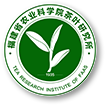Abstract:
Objective Means to reduce fertilizer use and improve fertilization efficiency at tea plantations were investigated.
Method A field experimentation was conducted using 6 different fertilization treatments on the lots for two consecutive years from 2018 to 2019. The proposed methods included conventional fertilization (CF) and an application of specialty fertilizer (SF), a new type of fertilizer (NF), a biochar-based fertilizer (BF), a specialty fertilizer+organic fertilizer (SF+OM), or a new type of fertilizer+organic fertilizer (NF+OM). Acidity of the plantation soil and yield of the tea bushes at the lots were determined.
Result Either treatment of SF or SF+OM significantly increased the pH in the 0-20 cm surface and 20-40 cm subsurface soils over that of CF, decreased the contents of exchangeable acids and aluminum in the surface soil, and effectively controlled the acidification of the surface and subsurface soils. On the other hand, NF, BF or NF+OM exerted no significant effect on the soil acidity. Nevertheless, all tested approaches increased the tea yield. For instance, significant improvements were observed in 2019 by the treatment of SF, SF+OM or NF+OM.
Conclusion Fertilization with SF or SF+OM on a tea plantation appeared to offer the farming management a plausible means to mitigate soil acidification and increase tea production.




 下载:
下载: